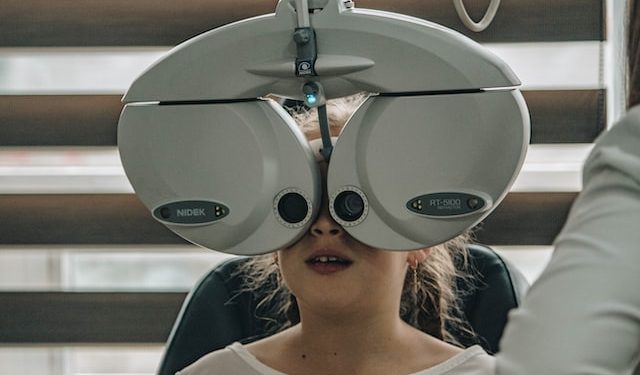Among the most sensitive parts of the human body, the eyes are one. As with the rest of your body, you must look after your eyes’ health. The most common misconception regarding eye test is that they are exclusively used to determine the strength of corrective lenses. However, there is more to a comprehensive eye exam than just checking vision. The most in-depth areas of vision are explored during a comprehensive eye exam.
Examining Your Eyes At The Advised Intervals
The patient’s present ocular health is the only determinant of whether a visual acuity test or a thorough examination is required. Maintaining sound eye health requires regular visits to the top ophthalmologists. Examinations of the whole eye are not as necessary for children as for adults. Adults should visit an eye doctor at least once every two years to evaluate their eyes for general health and vision. People whose work needs constant attention to visual details should get a comprehensive eye exam more often than once every two years.
The Significance Of Regular Eye Examinations:
- Maintaining good near and far vision with routine eye exams is crucial. The quality of your daily life will increase when your eyesight is restored.
- Nearsightedness, farsightedness, and other vision impairments are also among the issues that ophthalmologists screen for. The best technique to determine the likelihood of developing nearsightedness or farsightedness is via routine eye examinations. If caught early enough, treatment may halt further damage to the eyes and prevent significant issues down the road.
- If caught early enough, blindness may be avoided in more than 75% of instances.
- Cylindrical power is needed to correct common abnormalities like astigmatism, which optometrists detect during regular eye exams.
- It may be exceedingly challenging, if not impossible, to reverse the effects of some ocular symptoms and illnesses once they have manifested. Therefore, it is crucial to check the optic nerves and lens.
Treat Unnoticed Problems
- Due to the lack of symptoms, glaucoma has earned the nickname “the quiet thief of vision.” It is not until irreversible visual loss has occurred from glaucoma that people learn of its existence. After that point, keeping glaucoma under control and preventing further vision loss is challenging. Therefore, regular eye examinations aid in the early diagnosis of glaucoma risk factors and protect against the blinding effects of the condition.
- Vision is foggy and unclear for people with cataracts because the lens of their eyes becomes opaque. A thorough eye exam, prompt diagnosis, and lens replacement surgery are crucial to restoring normal vision.
- Age-related macular degeneration, which may cause blindness if untreated, can also be detected with a complete eye examination.
Regularly scheduled eye examinations may detect multiple potentially life-threatening diseases. Doctors of optometry may assess your overall cardiovascular health by analysing the state of your retinal blood vessels. Retinal blood supply and vessel appearance alterations are reliable indicators of the presence of several diseases and disorders. You should have a thorough yearly checkup if you have diabetes or are at risk for developing diabetes. One common cause of blindness in people is diabetes. There are no outward signs of diabetic eye disease in its first stages. As a result, only a thorough eye exam may identify the early warning symptoms of the illness and allow physicians to initiate therapy in time to avoid permanent vision loss.
Conclusion
A symptom of Graves’ illness is swollen or bulging eyes. Lupus, an inflammatory disease, may cause inflammation of the eyes. Changes in the eye’s anatomy may indicate the presence of malignancy (ocular melanoma). Droopy eyelids and abnormally shaped pupils may indicate a neck tumour or an aneurysm. A regular eye test is an essential preventative measure that everyone should take, regardless of how good their vision may be. Getting your eyes checked regularly is crucial for monitoring your health.













